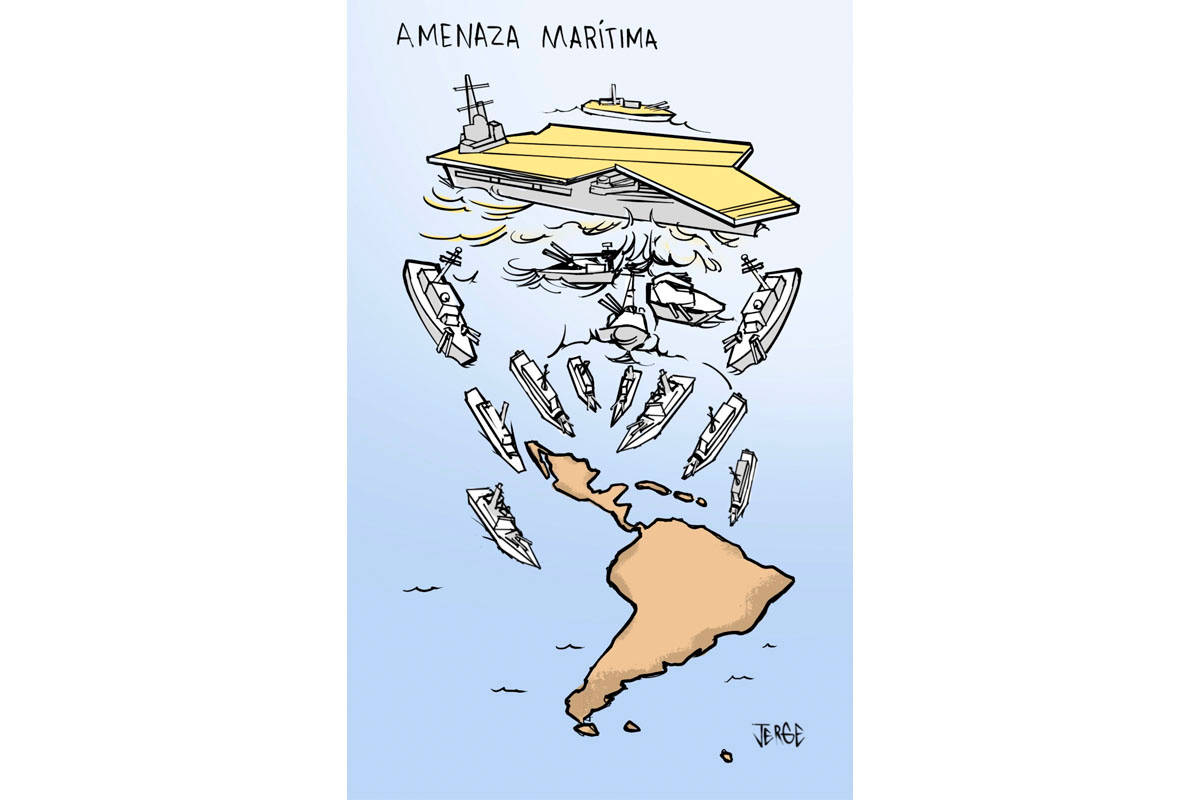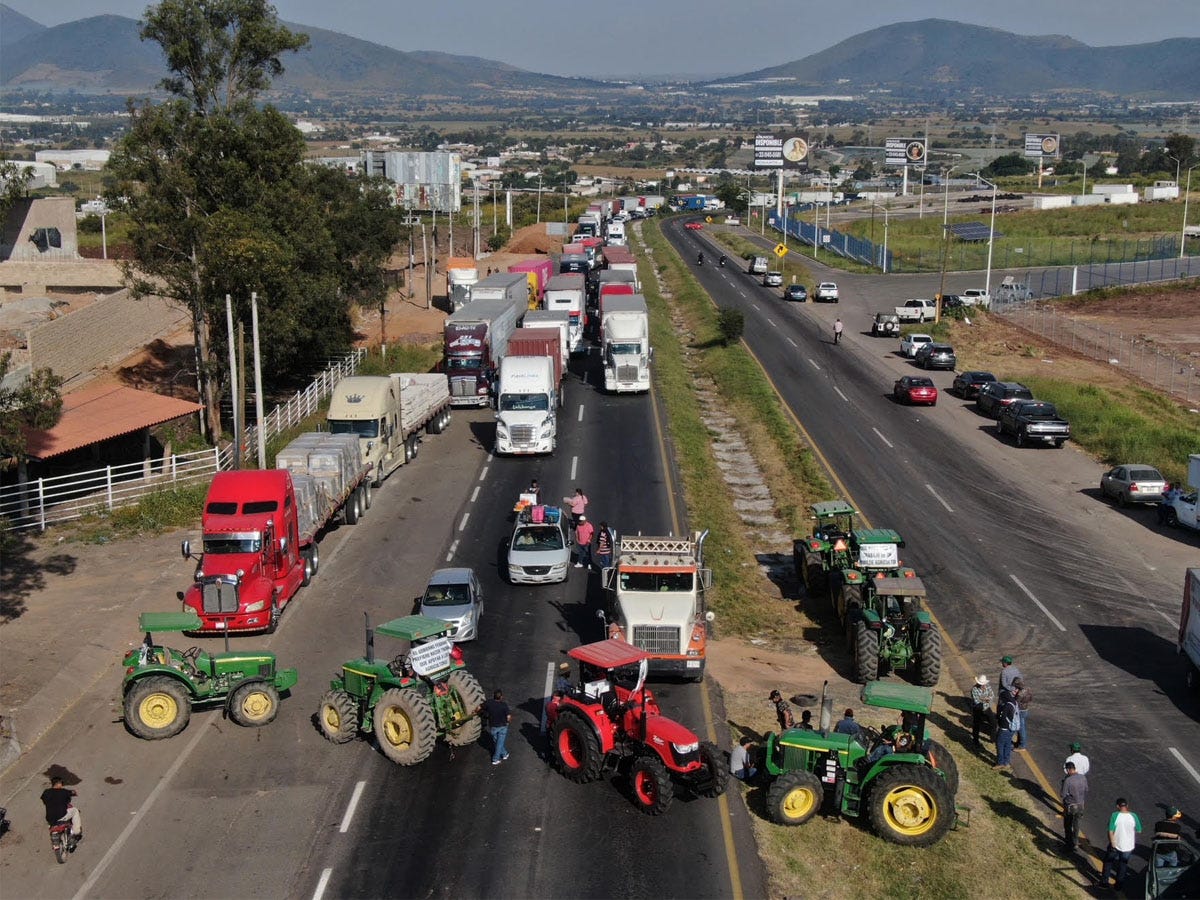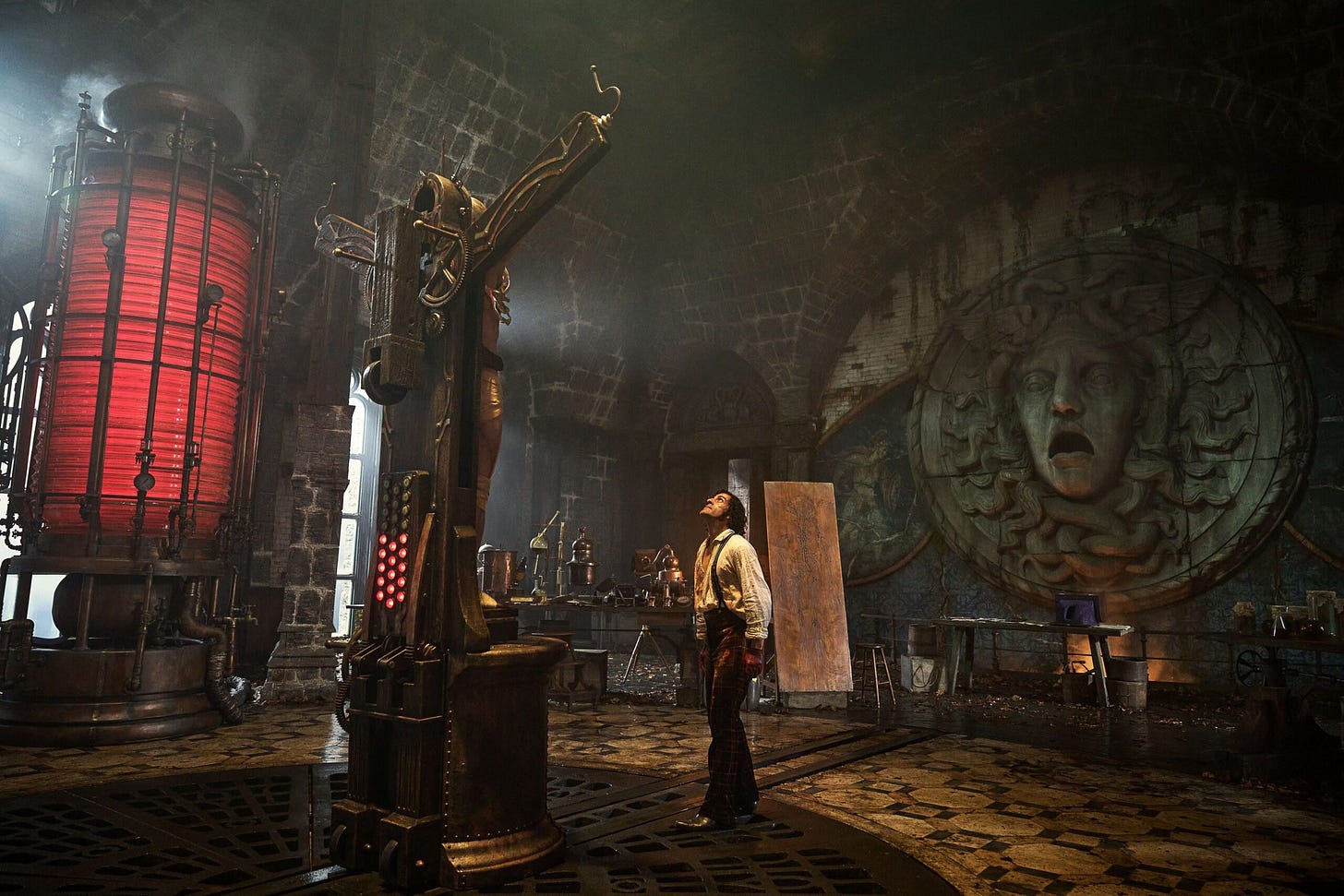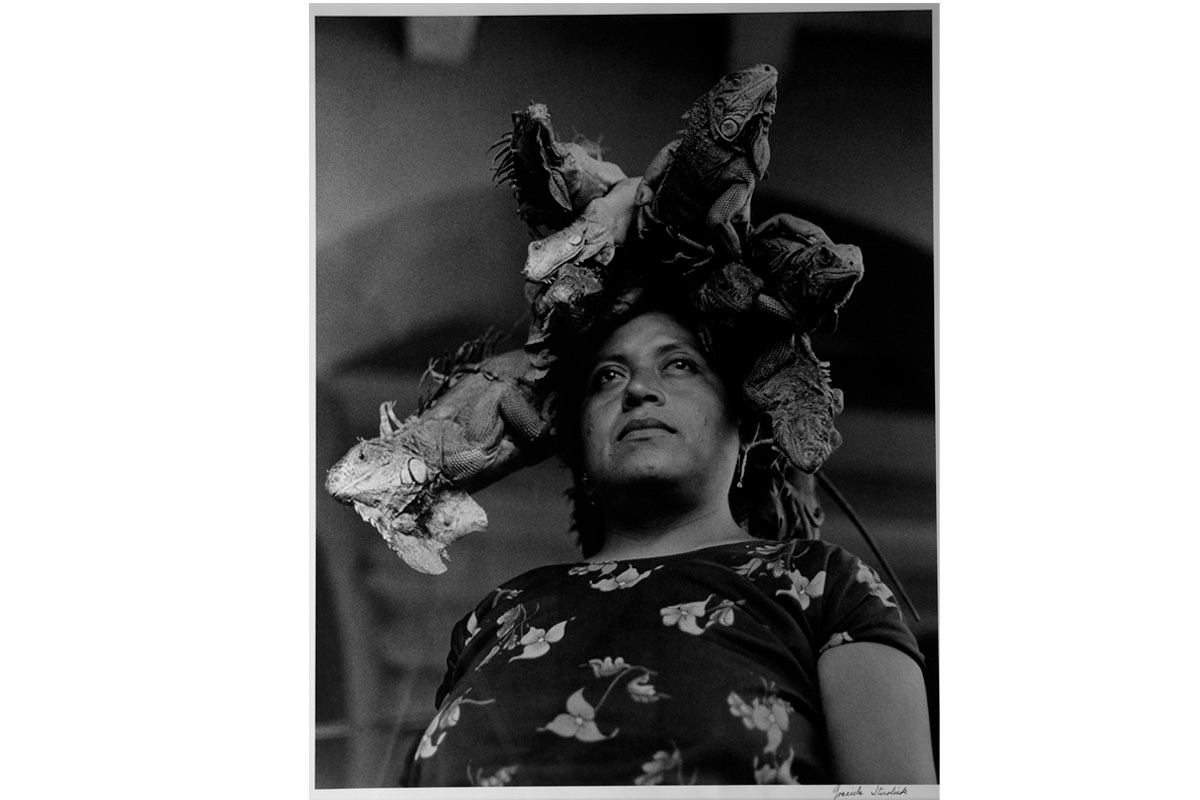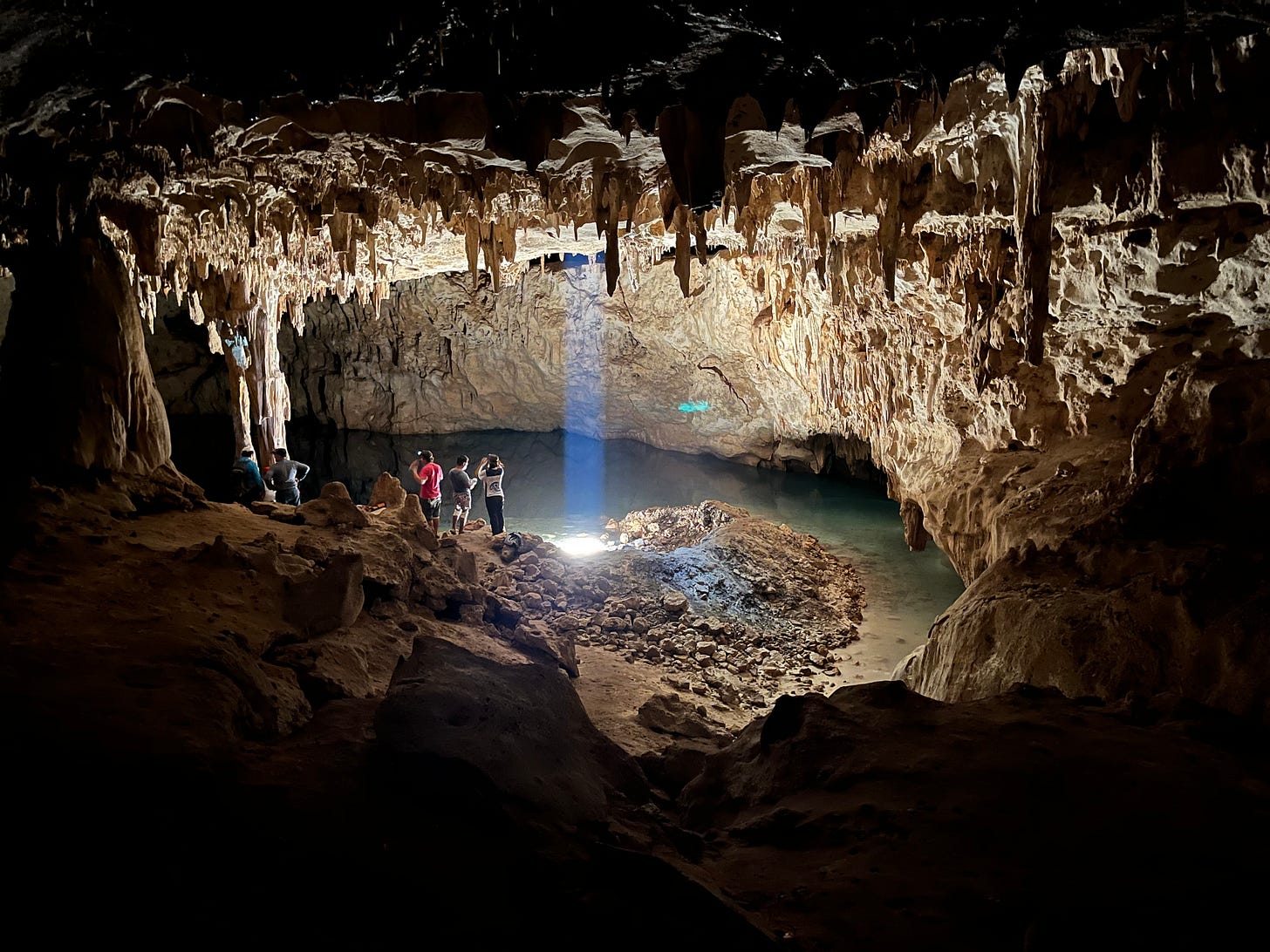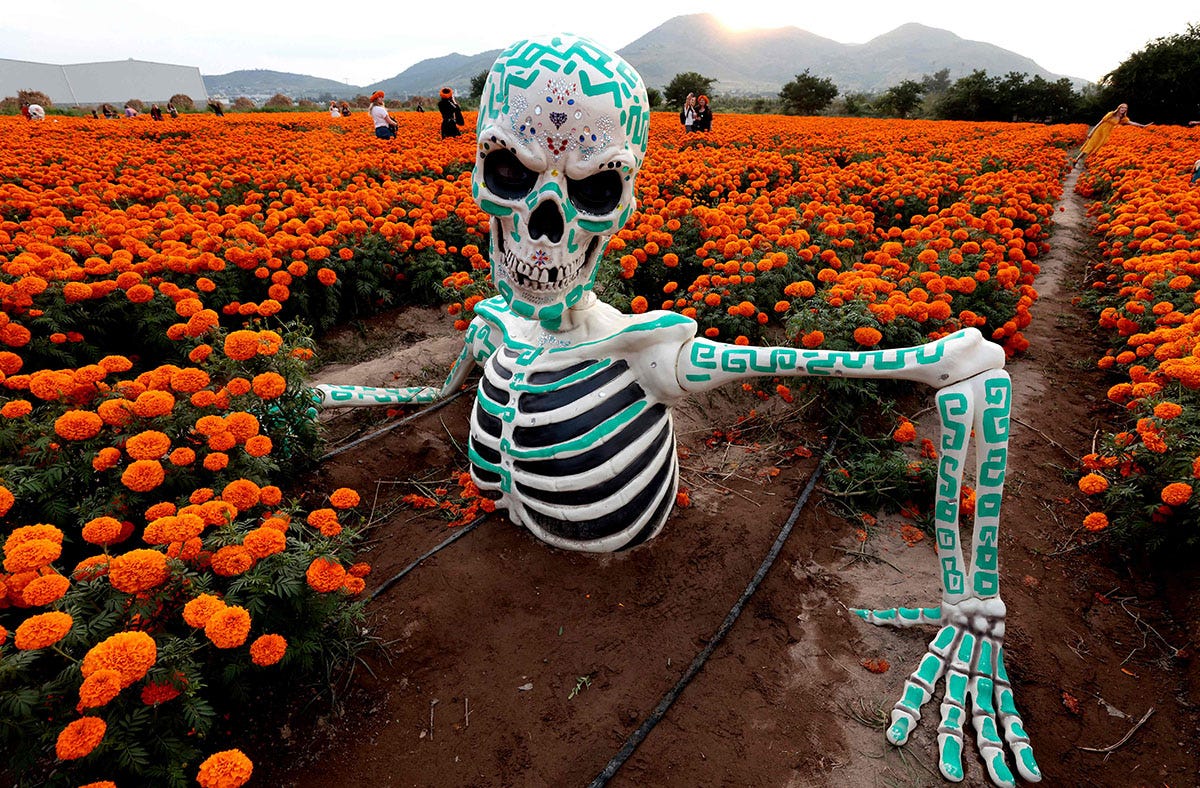The New Gunboat Diplomacy
Also: Farmers can’t take it anymore. Graciela Iturbide: photography and the interpretation of reality. More books by women, demanded of the FCE. The 13 years that changed the course of Chichén Itzá.
Lea La Jornada Internacional en español aquí.
Latin America Responds to the New Monroe Doctrine
The President of the United States has sent the world’s largest aircraft carrier to the Caribbean, is killing people in boats off the coast of Venezuela, and is demanding regime change in several Latin American countries. “We’re achieving very firm control over South America,” declared Donald Trump this week, and an influential senator said more directly, “President Trump is vigorously enforcing the Monroe Doctrine.”
But we live in a different world from the one in which the fifth president of the United States, in 1823, declared that his country would keep Napoleon out of the Americas, or even from the time of the brutal Cold War, when staging coups and supporting murderous dictators was at the core of U.S. policy. Mexican President Claudia Sheinbaum, along with other leaders, said in October she will not attend the Conference of the Americas in the Dominican Republic because Cuba, Venezuela, and Nicaragua are not invited due to pressure from the United States.
At the same time, Latin American leaders are rejecting threats of an intervention in Venezuela. At the United Nations, an overwhelming majority, 165 countries, voted to condemn Washington’s blockade of Cuba, despite an intense campaign of pressure and even intimidation by the Secretary of State to force governments to change their votes. The campaign did have an effect: last year’s vote saw 187 countries oppose the U.S. blockade.
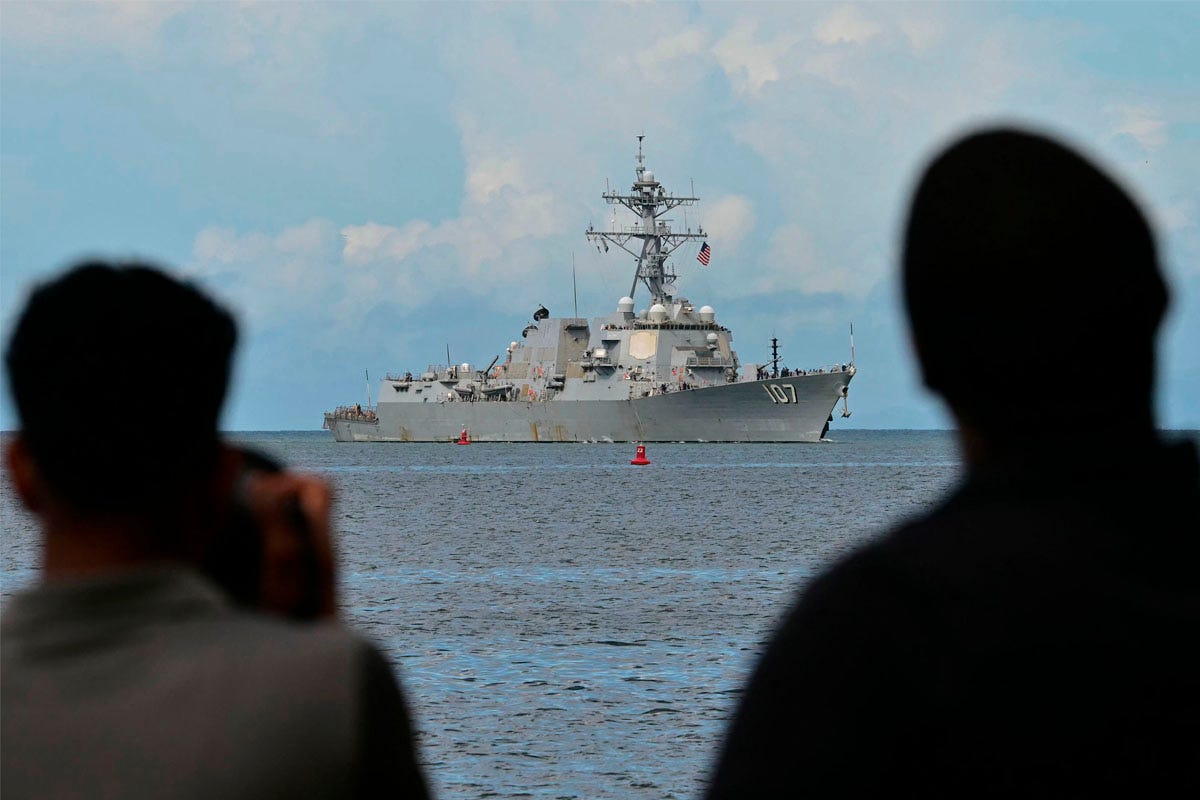
The government in the hemisphere most targeted by Washington says that this return to the era of gunboat diplomacy in the Caribbean, one of the worst in modern history, might actually represent a positive sign. “These brutal policies tend to pave the way for progressive processes because they are unbearable, unsustainable over time,” said Bruno Rodríguez Parrilla, Cuba’s Minister of Foreign Affairs. “So, I have the impression that this is a short period in history, one that will inevitably be overcome by the peoples of Latin America and the Caribbean.”
There seems to be little doubt that Washington is seeking war, at least with Venezuela, La Jornada comments in an editorial. These actions “are unacceptable and must be condemned by all the states of the region.” President Trump admitted to authorizing the CIA to carry out operations inside Venezuelan territory, a statement that hardly comes as a surprise given the agency’s long history of coups, assassinations, and other actions in Latin America.
At the end of October, the Venezuelan government announced it had dismantled a mercenary cell on its territory financed by the CIA, which was allegedly linked to planning a false-flag attack on a U.S. warship anchored in Trinidad and Tobago. According to flight-tracking websites, B-1 bombers have flown over Caribbean waters off the coast of Venezuela on at least three occasions in the last month.
More than 10,000 troops are deployed in a fleet of ships that by far represents the largest U.S. military concentration in the region in decades. Still, analysts in Washington believe a direct invasion is less likely than an expansion of coup attempts.
“If I were Maduro, I’d go to China or Russia, because his days are numbered,” warned Republican Senator Rick Scott, and he threatened that Cuba is next on the list. His colleague Lindsey Graham said the administration is seeking regime changes. In the United States, some lawmakers from both parties, alarmed by the maneuvers and bellicose rhetoric, are demanding a vote to authorize or reject a “war” in the Caribbean, particularly with Venezuela, but possibly also with Colombia, a move the White House would justify with drug-trafficking accusations. The commander-in-chief has said he does not need authorization and remarked, “I think we’re just going to kill people that are bringing drugs into our country.”
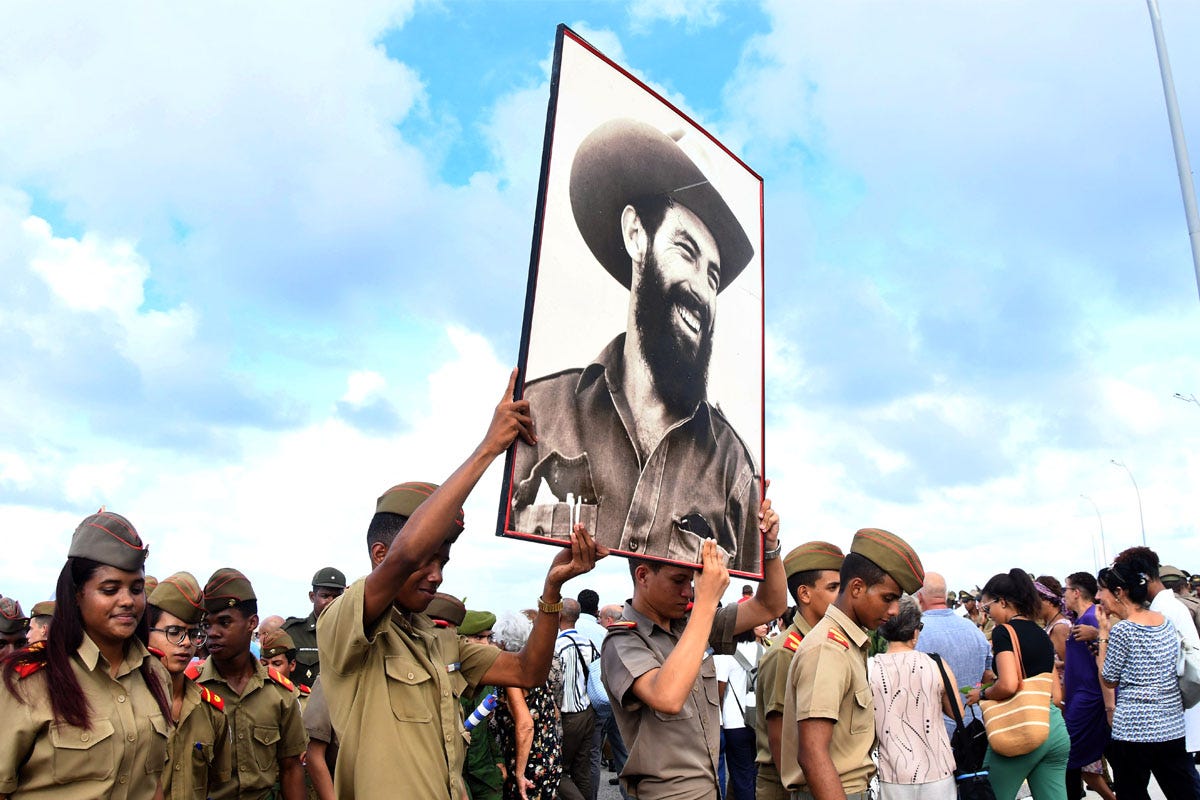
The Quote:
You can’t win an unwinnable war. DEA knows this, and the agents know this. (…) We know we’re not making a difference.
-José Irizarry, former DEA agent, in an interview with the AP news agency before beginning his prison sentence in 2021.
In case you missed it
◻️ Farmers just can’t take it anymore… For the second time in less than a month, thousands of farmers from 10 different Mexican states blocked highways to draw attention to the crisis caused by rising production costs, and to demand that the federal government set fair prices for grains and remove corn from the USMCA. Federal authorities and farmers reached agreements, including a price of 95,000 pesos per ton of corn, and the blockades are being lifted. Julio Hernández López warns that farmers’ work is very poorly paid, while grain hoarders, intermediaries, and large companies such as Maseca, Minsa, Cargill, and Sabritas earn huge profits.
◻️ The monster. Rafael Aviña writes about Guillermo del Toro’s Frankenstein: “To this wide gallery that includes Mimic, the ghosts of The Devil’s Backbone, Blade II, Hellboy, the fantastic beings of Pan’s Labyrinth, the creature from The Shape of Water, and even Pinocchio, we can add del Toro’s Frankenstein ‘monster’ as an allegory of society’s rejection of otherness that challenges the imposed codes of normality and perfection.”
◻️ China: from sleeping giant to global power. The Asian country is now one of the nations driving the world. Enrique Dussel Peters and Luis Hernández Navarro discuss this transformation with Javier Aranda on El Pulso de La Jornada.
◻️ Photography and the interpretation of reality. “I don’t like it when people say my photography is magical. What interests me more, and I’m not sure I always succeed, is that there is a dose of poetry in it. Photography plays with ambiguity: it reveals a fragment of reality that I try to veil again, in order not to squander the mystery it captures,” said Graciela Iturbide upon receiving the Princess of Asturias Award in Spain.
◻️ More books by women writers. President Claudia Sheinbaum has proposed that the Fondo de Cultura Económica (FCE) publish a collection dedicated to women writers, following protests against a selection made by director Paco Ignacio Taibo II. Taibo, perhaps the greatest promoter of reading in the country’s modern history, said regarding his goal of creating a “republic of readers” that during his seven years as director, “the FCE has taken a stance to combat all forms of discrimination against women. Machismo is a social disease that must be fought.”
◻️ The 13 years that changed the history of Chichén Itzá. Analysis of a stalagmite from the Tzabnah Cave, near Mérida, shows that climate change influenced the Mayan collapse in the Puuc region.


